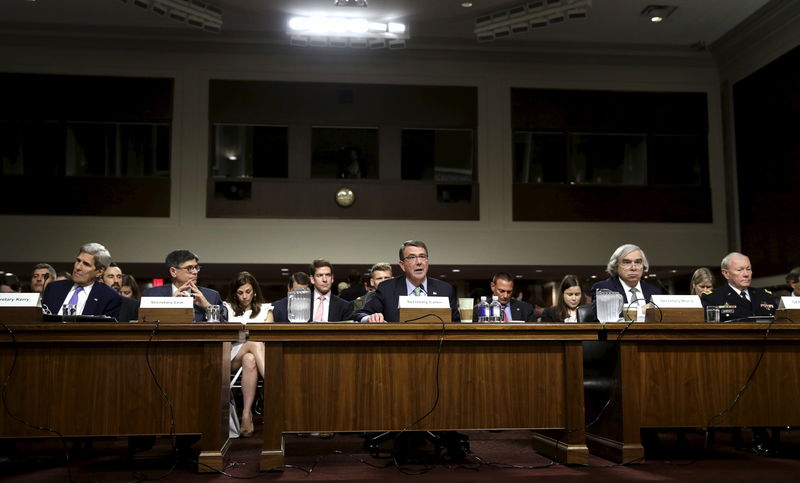WASHINGTON (Reuters) - Opposition to a nuclear pact between Iran and major powers grew among U.S. Republicans over the past month, a Reuters poll showed, reflecting a partisan struggle in Congress as President Barack Obama sought to win approval for the deal.
The poll, taken from Aug. 20-27, showed that 54 percent of Republicans now oppose the agreement to ease sanctions on Iran in exchange for restrictions on the country's nuclear programme. That is up from 45 percent of Republicans who opposed the deal in July and just 30 percent in April.
Democratic support for the deal fell slightly to 46 percent from 52 percent in July, but opposition among Democrats held steady at 16 percent.
Republican support for the deal, which was agreed in mid-July, fell to 19 percent from around 26 percent in the July survey. More than two-thirds of Republican respondents, or 71 percent, said they would be less likely to vote for their member of Congress if he or she endorsed the historic deal.
(For more Reuters polling on Iran and the nuclear deal, see: http://polling.reuters.com/#!search/iran)
Republicans in Congress are staunchly against the deal, leaving the White House scrambling to shore up support for the agreement among Democrats in the Senate and House of Representatives.
Congress is expected to vote on whether to approve the deal next month when its 60-day review period expires. Obama appears to have enough support among lawmakers to prevent Congress from overriding a veto should he need to use it.
Among Democrat voters, only 17 percent said they were less likely to vote for a lawmaker who backed the deal, while 47 percent said they would be more likely to do so.
In total, 63 percent of respondents said Iran could not be trusted to fulfil its obligations under the deal.
Some 68 percent of Republicans said they believed Iran would become a greater threat to the United States due to the deal, compared to 64 percent in July. Only 33 percent of Democrats see Iran becoming a greater threat.

A total of 2,015 Americans responded to the online survey - 808 Democrats, 704 Republicans and 279 independents. The poll had a credibility interval - a measure of precision - of plus or minus 2.5 percentage points.